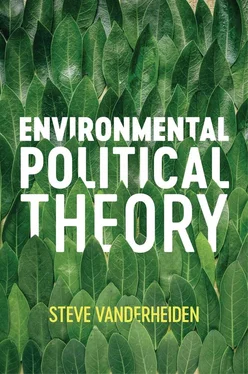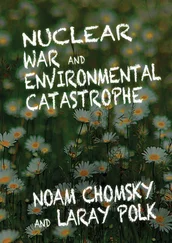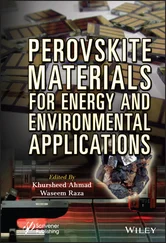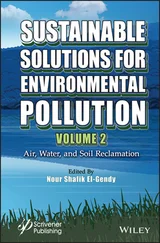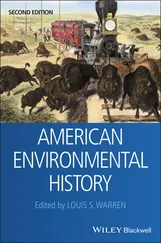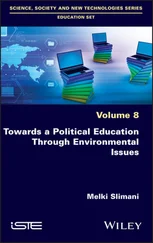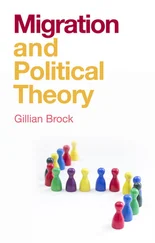The third kind of response to the challenge of ecological limits, and the only one that takes seriously the precautionary response called for by the science of environmental change, as well as the social and political ideals upon which modern liberal democracies are founded and toward which they in their best moments continue to aspire, seeks mutual accommodation between the sustainability ideal and those other existing ideals that it disrupts and must transform – but need not necessarily displace. It faults the business-as-usual response for underestimating the disruption posed by sustainability imperatives, and the eco-fortress for overestimating it and thus failing to maintain tenable versions of existing social and political ideals. Recognizing the need for sustainable transition in our institutions, infrastructure, practices, and ideas, this response meets the challenge of ecological limits through constraints imposed by (updated and reimagined) critical social and political ideals, ensuring that the transition it recommends is guided by imperatives of justice as well as sustainability.
Failing to maintain the material conditions necessary for society to treat its members justly and to govern itself democratically makes business as usual self-undermining, as justice and democracy are both threatened by worsening scarcity, while failing to maintain social conditions and institutions necessary to promote respect for, and protect the dignity of, persons and peoples undermines the normative basis for human society itself. Doing both – maintaining defensible versions of key social and political ideals, but making these compatible with the maintenance of those ideals over time – comprises the third response of the just transition. Here, “just” serves as a kind of shorthand for the mix of ideals to be discussed in chapters 3through 10, with the ideal of justice incorporating the seven others in various ways. For the purposes of the next eight chapters, this response aims to maintain some conceptions of the social and political ideals to be surveyed in those chapters. In the concluding chapter, we shall return to the question of what the just transition might look like, or how sustainability interacts with those other ideals. First, however, we must turn our attention to those eight ideals.
1 Mike Hulme, Why We Disagree About Climate Change (New York: Cambridge University Press, 2009). 2 John R. McNeill, The Great Acceleration: An Environmental History of the Anthropocene since 1945 (Cambridge, MA: Harvard University Press, 2014). 3 W. Steffen, A. Sanderson, P. D. Tyson, et al., Global Change and the Earth System: A Planet Under Pressure (New York: Springer-Verlag, 2004), p. 131. 4 John Stuart Mill, “On Liberty,” in On Liberty and Other Essays, ed. John Gray (New York: Oxford University Press, 1991), p. 17. 5 Eleonora Barbieri Masini, The Legacy of Aurelio Peccei and the Continuing Relevance of his Anticipatory Vision (Vienna: European Support Centre for the Club of Rome, 2006), p. 8. 6 Donella Meadows, Jorgen Randers, and Dennis Meadows, The Limits to Growth: The 30-Year Update (White River Junction, VT: Chelsea Green Publishing Co., 2004), p. xvi. 7 Garrett Hardin, “Lifeboat Ethics: The Case Against Helping the Poor,” Psychology Today (September, 1974): 38. 8 See Paul Sabin, The Bet: Paul Ehrlich, Julian Simon, and Our Gamble over Earth’s Future (New Haven, CT: Yale University Press, 2013). 9 Naomi Oreskes and Erik M. Conway, Merchants of Doubt: How a Handful of Scientists Obscured the Truth on Issues from Tobacco Smoke to Global Warming (New York: Bloomsbury Press, 2010).10 Wayland Kennet, “The Stockholm Conference on the Human Environment,” International Affairs 48(1) (1972): 37.11 Thomas W. Pogge, World Poverty and Human Rights, 2nd edition (Cambridge, and Malden, MA: Polity, 2008).12 Michael L. Ross, “The Political Economy of the Resource Curse,” World Politics 51(2) (1999): 297–322.13 Riley E. Dunlap, Aaron M. McCright, and Jerrod H. Yarosh, “The Political Divide on Climate Change: Partisan Polarization Widens in the U.S.,” Environment: Science and Policy for Sustainable Development 58(5) (2016): 4–23.14 Eliza Grizwold, “How Silent Spring Ignited the Environmental Movement,” The New York Times (September 21, 2012).15 David Michaels, “Doubt Is Their Product,” Scientific American (June, 2005).16 Kim Phillips-Fein, Invisible Hands: The Making of the Conservative Movement from the New Deal to Reagan (New York: Norton, 2009), p. 162.17 David Helvarg, The War Against the Greens (San Francisco: Sierra Club Books, 1994).18 Nan Aron, Justice for Sale: Shortchanging the Public Interest for Private Gain (Washington, DC: Alliance for Justice, 1993).19 National Task Force report on the Rule of Law & Democracy: New York University Brennan Center for Justice, Proposals for Reform, vol. II: National Task Force on Rule of Law & Democracy (2019): www.brennancenter.org/our-work/policy-solutions/proposals-reform-volume-ii-national-task-force-rule-law-democracy.20 Garrett Hardin, “Living on a Lifeboat,” BioScience 24(10) (1974): 566.21 John S. Dryzek, The Politics of the Earth: Environmental Discourses, 3rd edition (New York: Oxford University Press, 2013), p. 40.22 Peter Christoff, “The Climate State Global Warming and the Future of the (Welfare) State,” unpublished paper presented to the Western Political Science Association annual meeting, San Diego, CA, April 18–20, 2019, p. 31.23 Lisa Sun-Hee Park and David N. Pellow, The Slums of Aspen: Immigrants vs. the Environment in America’s Eden (New York University Press, 2011).
Конец ознакомительного фрагмента.
Текст предоставлен ООО «ЛитРес».
Прочитайте эту книгу целиком, на ЛитРес.
Безопасно оплатить книгу можно банковской картой Visa, MasterCard, Maestro, со счета мобильного телефона, с платежного терминала, в салоне МТС или Связной, через PayPal, WebMoney, Яндекс.Деньги, QIWI Кошелек, бонусными картами или другим удобным Вам способом.
